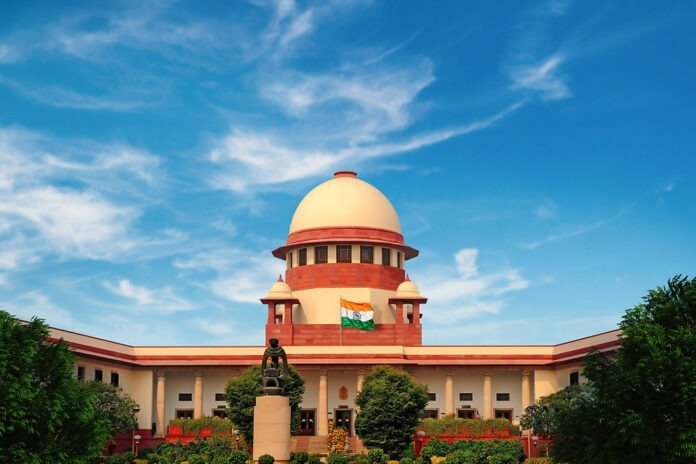The Supreme Court clarified that S.195 CrPC bars courts from taking cognizance of S.172–188 IPC offences unless a public servant files a formal complaint.
The Apex Court reiterates the mandatory nature of Section 195 CrPC and clarifies that charges closely tied to IPC Sections 172–188 cannot be separated to circumvent procedural safeguards.
In a key pronouncement impacting how certain criminal charges are prosecuted, the Supreme Court of India on August 20, 2025, reiterated that Section 195 of the Code of Criminal Procedure (CrPC) is not a mere procedural formality but a mandatory safeguard. It ruled that courts cannot take cognizance of offences under Sections 172–188 of the Indian Penal Code (IPC)—or even those closely connected with them—unless a written complaint is filed by the concerned public servant.
The judgment is a reaffirmation of the principle of jurisdictional bar, which protects individuals from facing criminal prosecution without due legal process. The apex court observed that splitting up offences or adding unrelated charges does not nullify the need for a formal complaint from a public servant obstructed in the course of duty.
What Does Section 195 CrPC Say?
Section 195 CrPC serves as a legal shield for citizens, requiring certain offences—especially those involving obstruction of public servants or falsification of documents in judicial proceedings—to be prosecuted only when the aggrieved public servant files a complaint. The intent is to prevent misuse of prosecutorial powers and ensure institutional checks on frivolous or retaliatory legal action.
It specifically applies to:
- Section 172 IPC: Absconding to avoid service of summons
- Section 186 IPC: Obstructing a public servant
- Section 188 IPC: Disobedience to an order duly promulgated by a public servant
The Supreme Court’s Ruling: Legal Summary
While adjudicating the matter, the bench delved into previous precedents and held:
“In view of the above, the law can be summarized to the effect that there must be a complaint by the public servant who was voluntarily obstructed in the discharge of his public functions. The complaint must be in writing. The provisions of Section 195 Cr.P.C. are mandatory. Non-compliance of it would vitiate the prosecution and all other consequential orders. The court cannot assume cognizance of the case without such complaint. In the absence of such a complaint, the trial and conviction will be void ab initio, being without jurisdiction.”
In effect, the Court underlined that even offences that are not under Sections 172–188 IPC but are part of the same act or incident—and hence inextricably linked—cannot be proceeded with unless the original bar under S.195 is lifted by a valid complaint.
Attempt to Bypass the Law Won’t Succeed
Legal experts believe that this ruling curtails creative prosecution strategies where enforcement authorities often bundle IPC charges with other offences to circumvent procedural safeguards.
By reaffirming that closely connected offences cannot be separated to dodge the mandatory complaint clause, the Court has made it clear that procedural compliance is foundational to lawful prosecution.
This ruling sends a strong message to the lower judiciary and investigative agencies: avoid tactical legal shortcuts that compromise procedural fairness. It also promotes judicial accountability, ensuring that courts do not exercise jurisdiction unless properly vested.
Why This Judgment Matters
This interpretation protects not just the integrity of the criminal justice system but also citizen rights. Section 195 is often overlooked, especially in cases of civil protests, disobedience to executive orders, or public demonstrations—where charges under Sections 186 or 188 IPC are frequently invoked.
In many such cases, authorities fail to follow through with the required written complaint. The Court’s emphasis now means that such prosecutions may not be legally tenable and could be struck down on jurisdictional grounds.
Moreover, the ruling aligns with previous SC decisions that stressed the mandatory nature of S.195—including Daulat Ram v. State of Punjab (1962) and C. Muniappan v. State of Tamil Nadu (2010).
Call for Uniform Application in Trial Courts
Despite clear precedent, trial courts often proceed with such cases based on charge sheets submitted by police, without verifying whether a formal complaint by the obstructed public servant exists. This judgment is expected to bring uniformity and clarity in such matters.
Legal commentators now urge State authorities and investigating agencies to train officials on the procedural requirements of CrPC to avoid wastage of judicial time and resources on avoidable litigation.
Legal Community Reacts
Commenting on the verdict, senior advocate R. K. Malhotra said, “This is a seminal ruling. It restores the sanctity of procedural law and limits arbitrary use of criminal prosecution, particularly against activists or dissenters.”
Civil liberties lawyers welcomed the decision as a protective measure against abuse of power, especially during politically sensitive events where mass arrests under S.188 IPC are common.
For continued updates on Supreme Court rulings, legal reforms, and criminal procedure insights, visit The Legal Observer’s National News section. You can also follow our legal explainers and case law updates via our official YouTube channel.




